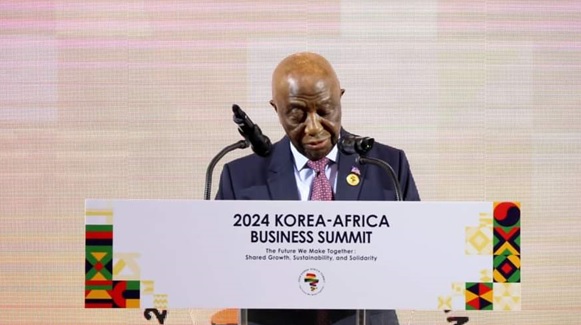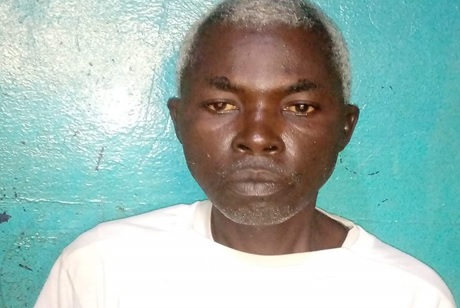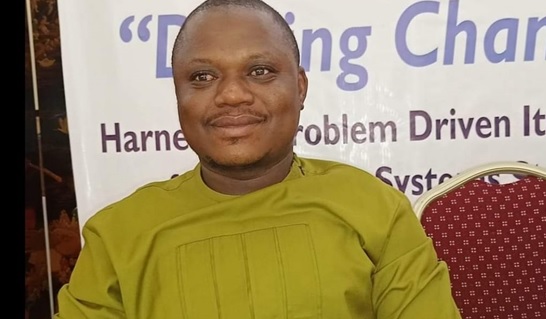SEOUL, SOUTH KOREA – At the Special Meeting on “Strengthening Food and Mineral Security” during the 2024 Korea-Africa Summit, President Joseph Nyuma Boakai of Liberia highlighted the critical importance of addressing food and mineral security for the development and well-being of African nations.
President Boakai underscored the paradox of Africa’s vast natural resources and the persistent poverty affecting its populations. He pointed out that Africa is home to approximately USD 6.5 trillion worth of natural resources, with Sub-Saharan Africa holding about 30% of the world’s critical mineral reserves and 65% of the world’s uncultivated arable land.
Despite these riches, millions of Africans live in poverty, and Sub-Saharan Africa remains the region most affected by food insecurity, as reported by the 2023 Global Hunger Index.
“The irony of wealth and poverty, often termed the ‘Curse of Riches,’ has significantly influenced Africa’s development path,” said President Boakai. He cited Liberia as a prime example, where decades of resource exploitation have yet to translate into substantial developmental gains. The contrast between the continent’s immense natural wealth and the pervasive poverty of its people presents a significant challenge that must be addressed urgently.
President Boakai called for action through strengthened cooperation, collective experience, knowledge, technology, and industry to improve global food and mineral security. He emphasized the need for enhanced mineral resource governance and evidence-based policies to ensure that Africa’s natural wealth benefits its people, creating conditions for them to thrive. By leveraging Korea’s expertise and technological advancements, African nations can transform their resource management strategies and achieve sustainable growth.
The discussions at the summit must address the twin crises of food insecurity and challenges in mineral exploitation. President Boakai highlighted the importance of adopting better technologies and innovations to combat malnutrition, hunger, and climate change, and improving infrastructure to promote sustainable agriculture. Implementing advanced agricultural techniques and infrastructure improvements is essential to increasing food production and ensuring food security across the continent.
He also stressed that mineral security can only be ensured through transparency, accountability, and fairness in mineral governance, emphasizing value addition, local content, environmental concerns, and fair compensation for host communities affected by concessions. Transparent and accountable governance structures are crucial for managing mineral resources effectively and equitably, ensuring that the benefits are widely distributed among the population.
“Governments, the corporate world, and civil society must collaborate to find the best solutions,” President Boakai asserted. He highlighted the potential of African nations, with their youthful populations and critical resources, to work with Korea leveraging its innovations, technology, knowledge, and industry to impact the lives of over a billion people worldwide. Collaborative efforts between African nations and Korea can lead to significant advancements in food and mineral security, driving economic growth and improving the quality of life for millions.
President Boakai concluded by urging all stakeholders to work with urgency and seize the opportunities presented by the summit to find sustainable solutions for strengthening food and mineral security, securing a better future for generations to come. The call to action underscores the importance of immediate and decisive measures to address these pressing issues, ensuring a prosperous and secure future for Africa and its people.







